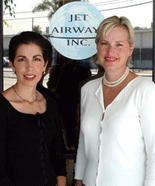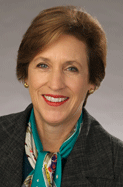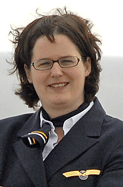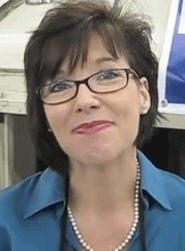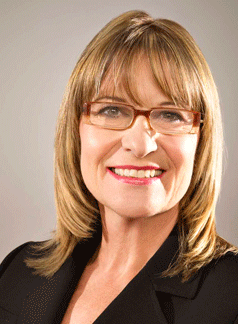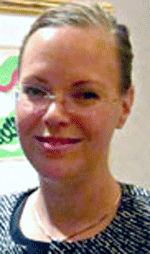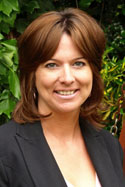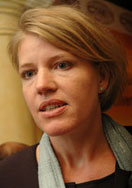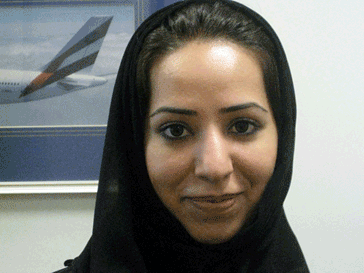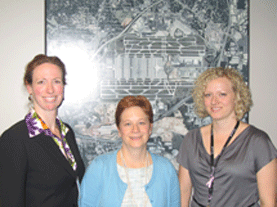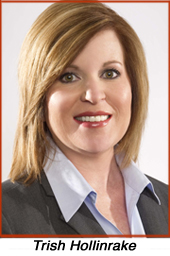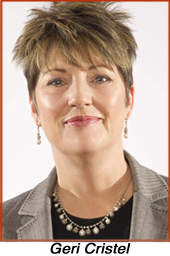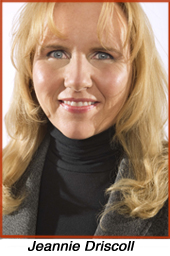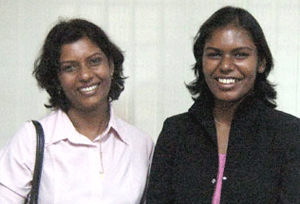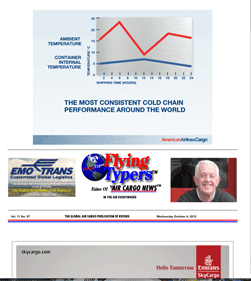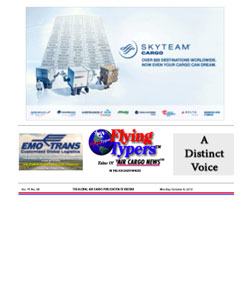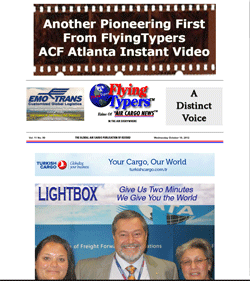| 
Some further
thought on the public sessions at The International
Air Cargo Association (TIACA) Air Cargo Forum
(ACF) in Atlanta earlier this month, and its
opening, out-of-the-gate gathering held Tuesday
morning, October 2, 2012.
At the very
start, the session acknowledged the backdrop
of what’s on everyone’s mind—the
slowing state of global economy, or as Lufthansa
Cargo CEO Karl Ulrich Garnadt put it, the
“soft markets” amid volatile fuel
prices and completely unpredictable business
conditions.
Otherwise the
comments, while not earth shattering, were
at least predictable.
Atlas Air’s
Michael Steen emphasized the importance of
air cargo with 57 million jobs globally and
2.2 trillion in trade.
Atlanta mayor
Kasim Reed touted a 19 percent growth in air
cargo for Atlanta since 2010 and 19,000 jobs—a
consistent priority for this mayor.
Thinking back
for a moment to when ACF started as TIACA,
The Grand Duke of Luxembourg (2011 GDP $57
billion) delivered the keynote address in
1992; this year, U.S. Secretary of Transportation
Ray LaHood ($70 billion budget), in office
since January 2009, gave the speech.
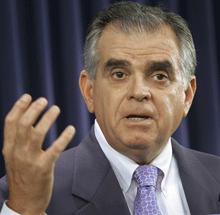 But
size aside, Secretary LaHood, while providing
some star power to the Atlanta ACF, otherwise
noted that the U.S. has the largest and safest
aviation system in the world, which is critical
to global trade. But
size aside, Secretary LaHood, while providing
some star power to the Atlanta ACF, otherwise
noted that the U.S. has the largest and safest
aviation system in the world, which is critical
to global trade.
The administration,
Mr. LaHood insisted, has been pushing for
and has secured open sky agreements and access
around the world in over 100 markets that
are the foundation for commercial decisions
by airlines.
In closing his
remarks, the secretary said, “we are
committed to your industry” without
more specifics.
But Mr. LaHood did take some questions.
In response
to one query, Mr. LaHood commented that the
EU ETS (emissions trading scheme) was “lousy
– we are being penalized by the EU”
and an unfair tax on airlines, a matter the
U.S. is strongly opposed to on both legal
and policy grounds.
Mr. LaHood found
some favorable responses with that comment.
The dialogue
part of the show titled “Meeting Customer
Expectations in a Changing World” had
a panel discussion moderated by CNN business
personality Ali Velshi and also featured Delta
Air Lines CEO Richard Anderson, UPS Airlines
president Mitch Nichols, Atlas Air Worldwide
president and CEO William Flynn, CEVA CEO
John Patullo, and Coca Cola chief product
supply officer Brian Kelley.
When asked about
the current state of business, Mr. Kelley
and Mr. Patullo expressed the view that the
sluggish economy would continue with “more
of the same” difficult conditions, volatility,
cautious customers, and a battle for stagnant
market share.
Mr. Flynn indicated
his company was betting on a fuel efficient
fleet and air freight eventually recovering,
as it did in past crises, while Mr. Nichols
stressed the need for more free trade and
open markets, noting that 70 percent of global
purchasing power is outside the U.S.
Delta’s
Richard Anderson had a generally positive
outlook, mentioning strong productivity and
varying regional conditions—continuing
choppiness in Europe, with Mexico doing quite
well and Brazil being a well-run country.
The discussion
covered a wide range of topics: the relatively
stable logistics activity in northern Europe,
how to give domestic companies global access
and a competitive edge, the role of social
media and youth that are driving brand growth,
designing smarter supply chains to connect
an ever more complex industry, and sustainability,
including noise and carbon footprint becoming
critical.
Capacity management
and matching demand were also addressed, whether
by adjusting frequencies or taking out certain
capacity in weaker markets and shifting assets
around. There was much agreement on the need
for more international harmonization, citing
everything from security to e-freight and
regulatory regimes.
On the EU ETS
question, the Delta CEO quipped that “it
will probably get resolved by India and China
not buying Airbus airplanes.”
An expertly
and deftly moderated panel of top executives
concluded that transportation and air cargo
especially would benefit much from more regular
coverage by the business media.
A tough act
to follow, the second panel—Collaboration
for Smart Security— was moderated by
Brandon Fried, executive director of the Airforwarders
Association, with John Sammon, Assistant Administrator
TSA, U.S. DHS (department of homeland security);
Kevin McAleenan, Acting Assistant Commissioner
CBP (customs and border protection), U.S.
DHS; Raymond Benjamin, ICAO (int’l civil
aviation organization) Secretary General;
and Karl Ulrich Garnadt, Chairman of the executive
board and CEO Lufthansa Cargo. Much
of the discussion was between the moderator
and Mr. Sammon and focused on U.S. inbound
screening and the ACAS (air cargo advance
screening), which has been addressed at many
other venues and events.
Mr. Benjamin
highlighted the need for data and intelligence
and cooperation among the industry partners,
using the example of customs and aviation
organizations now working well together.
The clear dissonance
was evidenced in the policies and views taken
by the U.S., which favor and rate higher security
for cargo on passenger aircraft—a reflection
of congressional priorities—and that
expressed by Mr. Garnadt to treat any and
allcargo equally, regardless of whether it
ends up being carried by an all-cargo aircraft.
On a positive
note, the convergence of efficiency, compliance,
and security seems to pick up speed and additional
impetus in response to the need for a global
standard for capturing shipment data that
can satisfy all.
As much as airlines
abhor regulations, there is no doubt it drives
much needed changes in the industry.
It was also
noteworthy that industry/regulatory collaboration
has improved markedly and industry solutions
are taken into consideration by the respective
authorities.
 After
the lunch sponsored by Boeing and an address
by Mike Blair, senior VP marketing, who hit
the highlights and arguments for more fuel-efficient
airplanes, Boeing hosted a breakout session
releasing their 2012/2013 air cargo forecast.
It is noteworthy that the last (2010/2011)
forecast for 5.9 percent annual growth didn’t
come close to matching 2012 realities—but
neither did anyone else’s predictions. After
the lunch sponsored by Boeing and an address
by Mike Blair, senior VP marketing, who hit
the highlights and arguments for more fuel-efficient
airplanes, Boeing hosted a breakout session
releasing their 2012/2013 air cargo forecast.
It is noteworthy that the last (2010/2011)
forecast for 5.9 percent annual growth didn’t
come close to matching 2012 realities—but
neither did anyone else’s predictions.
Tom Crabtree,
(right) regional director business development
and strategic integration, Boeing presented
the forecast after going over market conditions,
the differences over the 2001-2011 period
in 3.7 percent air cargo versus 8.3 percent
sea freight growth rates, and variations in
annual GDP (China 6.7 percent, Africa 4.4
percent, Asia 4.1 percent, Latin America 4.1
percent, Middle East 3.9 percent).
A 5.2 percent
annual growth rate is projected by Boeing
for the next twenty years, with nearly 60
percent of air cargo being carried on freighter
aircraft, resulting in an aggregate demand
for 940 new and 1,820 converted passenger
aircraft and generating an annual 77 billion
global revenue from air cargo for airlines.
Ted/Flossie
|



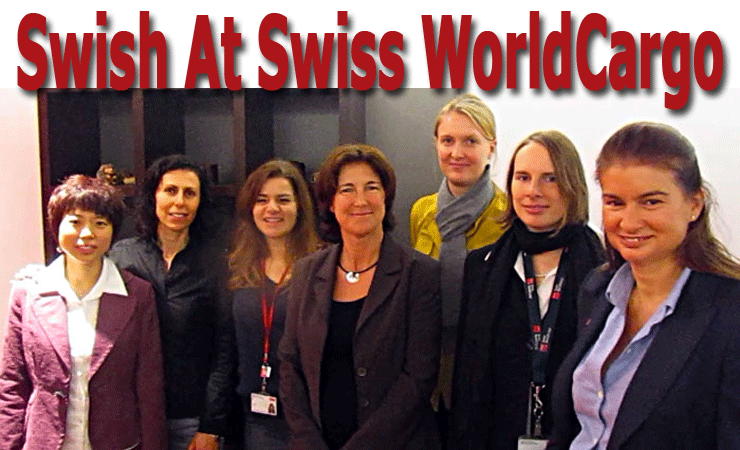
 Bettina
Jansen
Bettina
Jansen



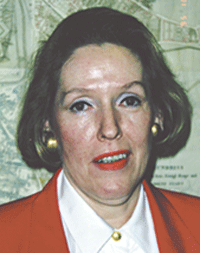


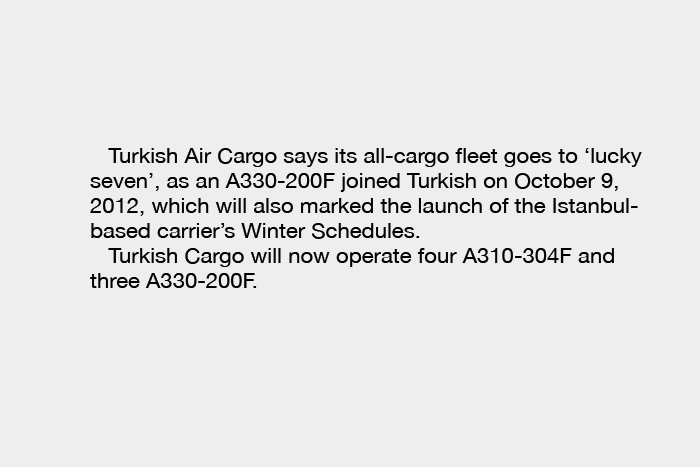

 But
size aside, Secretary LaHood, while providing
some star power to the Atlanta ACF, otherwise
noted that the U.S. has the largest and safest
aviation system in the world, which is critical
to global trade.
But
size aside, Secretary LaHood, while providing
some star power to the Atlanta ACF, otherwise
noted that the U.S. has the largest and safest
aviation system in the world, which is critical
to global trade.  After
the lunch sponsored by Boeing and an address
by Mike Blair, senior VP marketing, who hit
the highlights and arguments for more fuel-efficient
airplanes, Boeing hosted a breakout session
releasing their 2012/2013 air cargo forecast.
It is noteworthy that the last (2010/2011)
forecast for 5.9 percent annual growth didn’t
come close to matching 2012 realities—but
neither did anyone else’s predictions.
After
the lunch sponsored by Boeing and an address
by Mike Blair, senior VP marketing, who hit
the highlights and arguments for more fuel-efficient
airplanes, Boeing hosted a breakout session
releasing their 2012/2013 air cargo forecast.
It is noteworthy that the last (2010/2011)
forecast for 5.9 percent annual growth didn’t
come close to matching 2012 realities—but
neither did anyone else’s predictions.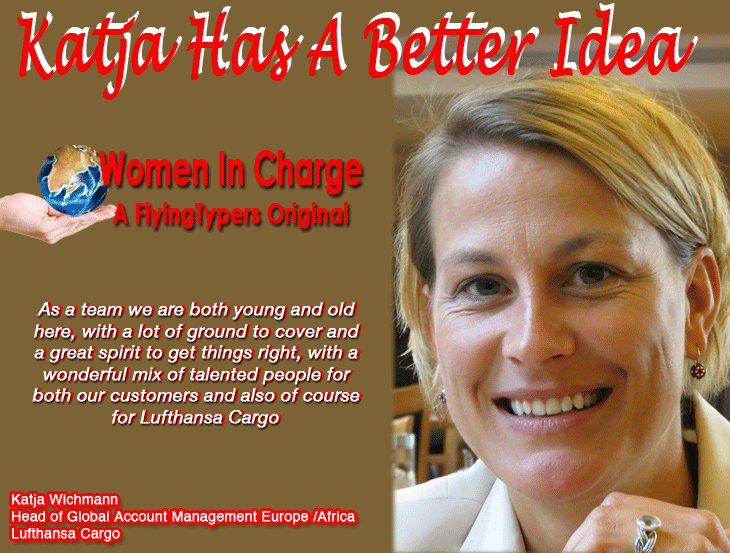
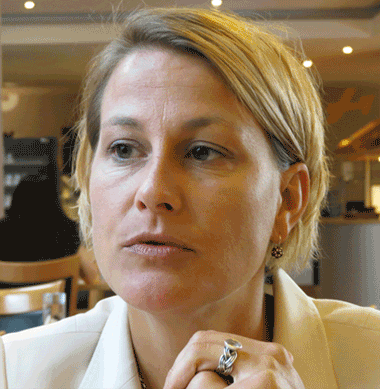 And part of
her off time is made all the more melodic
as Katja enjoys playing the piano, especially
the tune ‘Fame’: “my favorite
song.”
And part of
her off time is made all the more melodic
as Katja enjoys playing the piano, especially
the tune ‘Fame’: “my favorite
song.”



